Congratulations to Derek Vance, winner of the 2024 raffle who’ll be receiving round-trip airfare for two to Germany! We used the ‘sticky baby’ method to draw the ticket, where a small child is held near the raffle wheel to see what ticket first sticks to their hands or feet. This is always our last drawing, on the second Sunday of Oktoberfest, and everyone who buys a ticket over both weekends has a chance to win… Luck was certainly on Mr. Vance’s side!
Details for the 2025 event will be shared soon. Please check back for updates. You can also follow our social media sites to view related news and pictures:
Scroll down for additional event information and pictures from previous Oktoberfests.

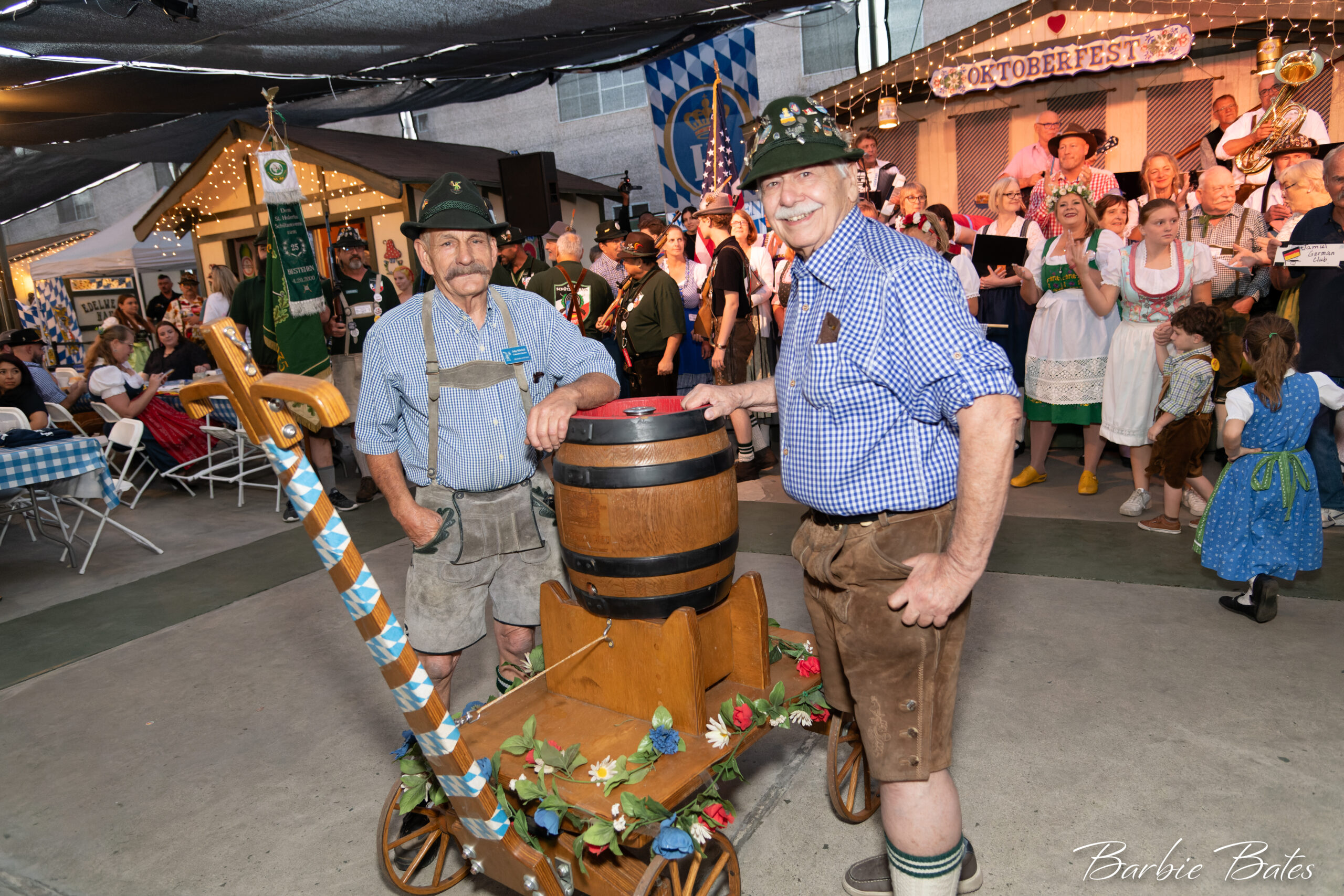
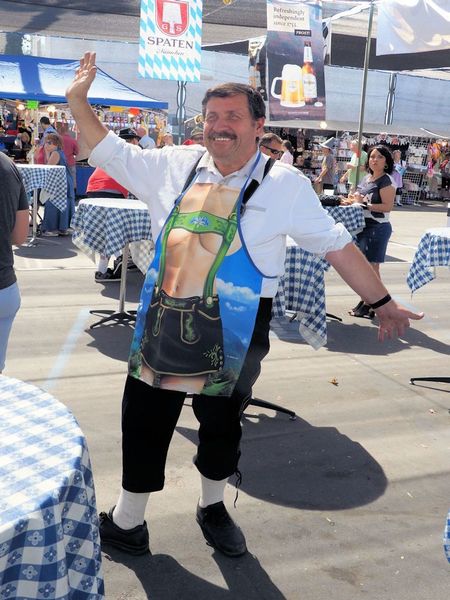
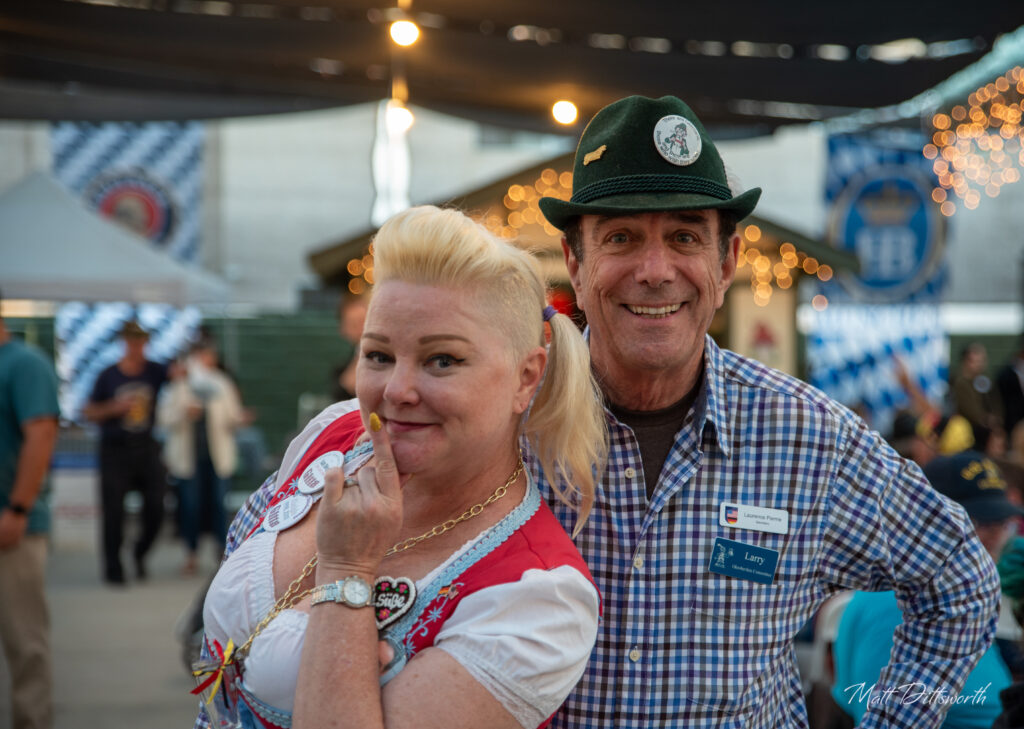
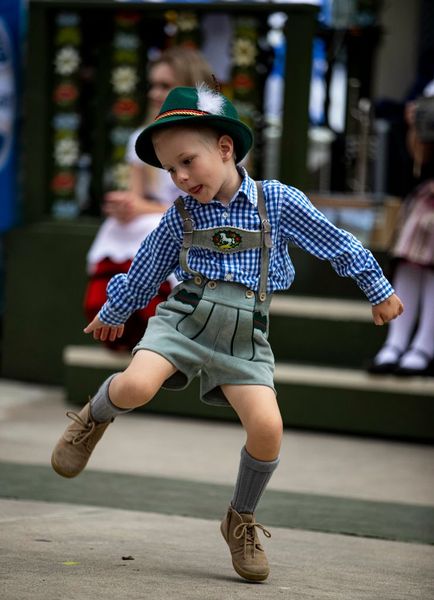
About the Event
Join us for two full weekends of authentic German celebrations. Oktoberfest in El Cajon, hosted by the German American Societies, is the closest thing to Munich’s Oktoberfest you’ll find in Southern California!
Enjoy German food such as bratwurst, ox-on-the-spit, potato pancakes, sauerkraut, red cabbage, potato salad, salted pretzels, and a variety of European pastries. Let a great selection of German beers and liquors – or water, soft drinks and coffee – quench your thirst while you enjoy traditional folk dancing, choir recitals, drama routines, stein-holding competitions, and interactive musical entertainment. Games, contests and prizes, a Kid Zone and a variety of shopping booths line the patio “tent” for additional all-ages fun.
You don’t need to be German to join the party. Everyone is welcome. Bring your family and friends to experience the real Oktoberfest in El Cajon!

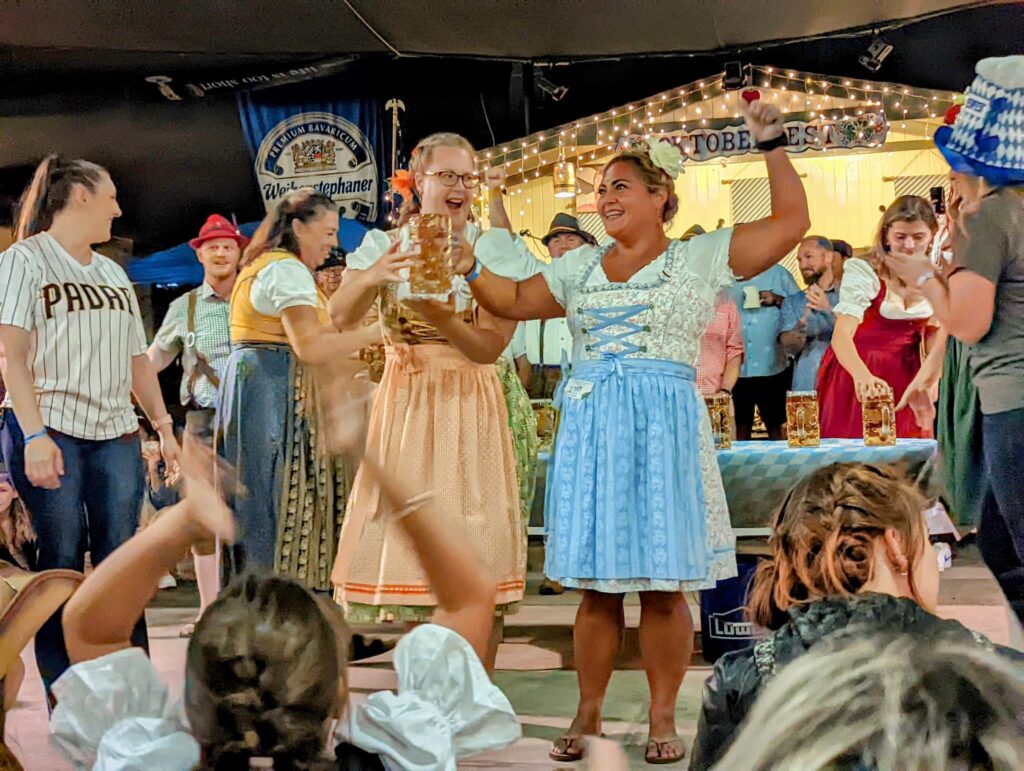
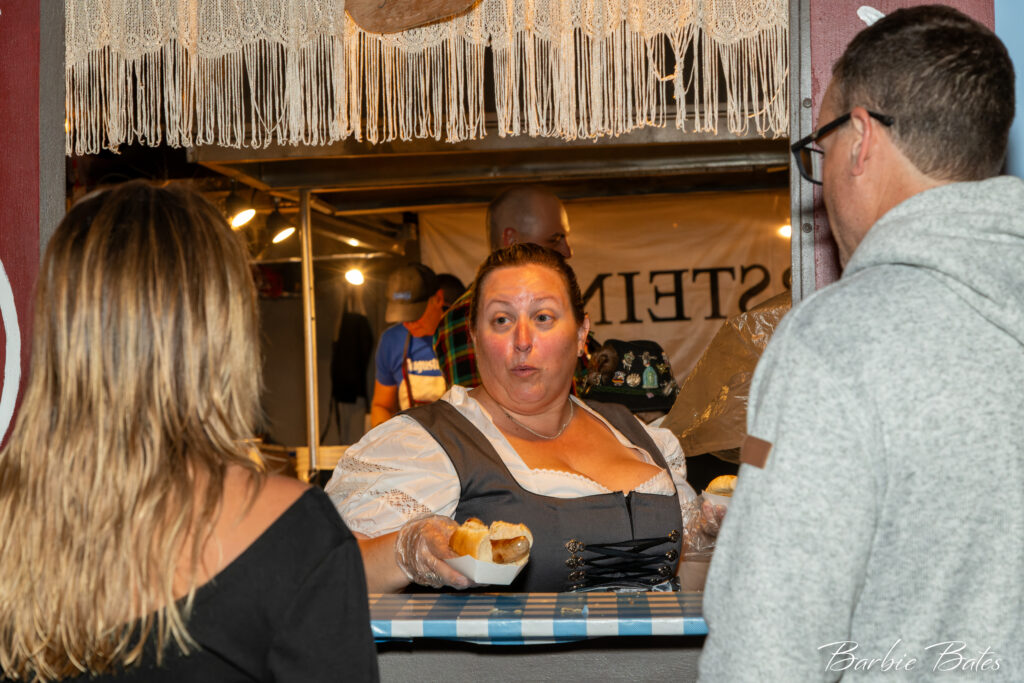
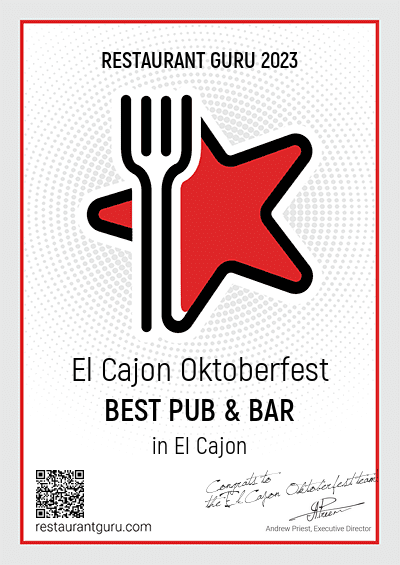

Meet Our Band
Our band, the Guggenbach-Buam, joins us from Baden-Württemberg, Germany. These talented, entertaining musicians dress in traditional clothing and play a variety of German music, just as you would hear in the beer gardens in Bavaria. Enjoy songs such as the chicken dance, polkas and waltzes, and all the famous beer-drinking tunes – new and old! Dance or sing along to some wonderful Oom-pah music!
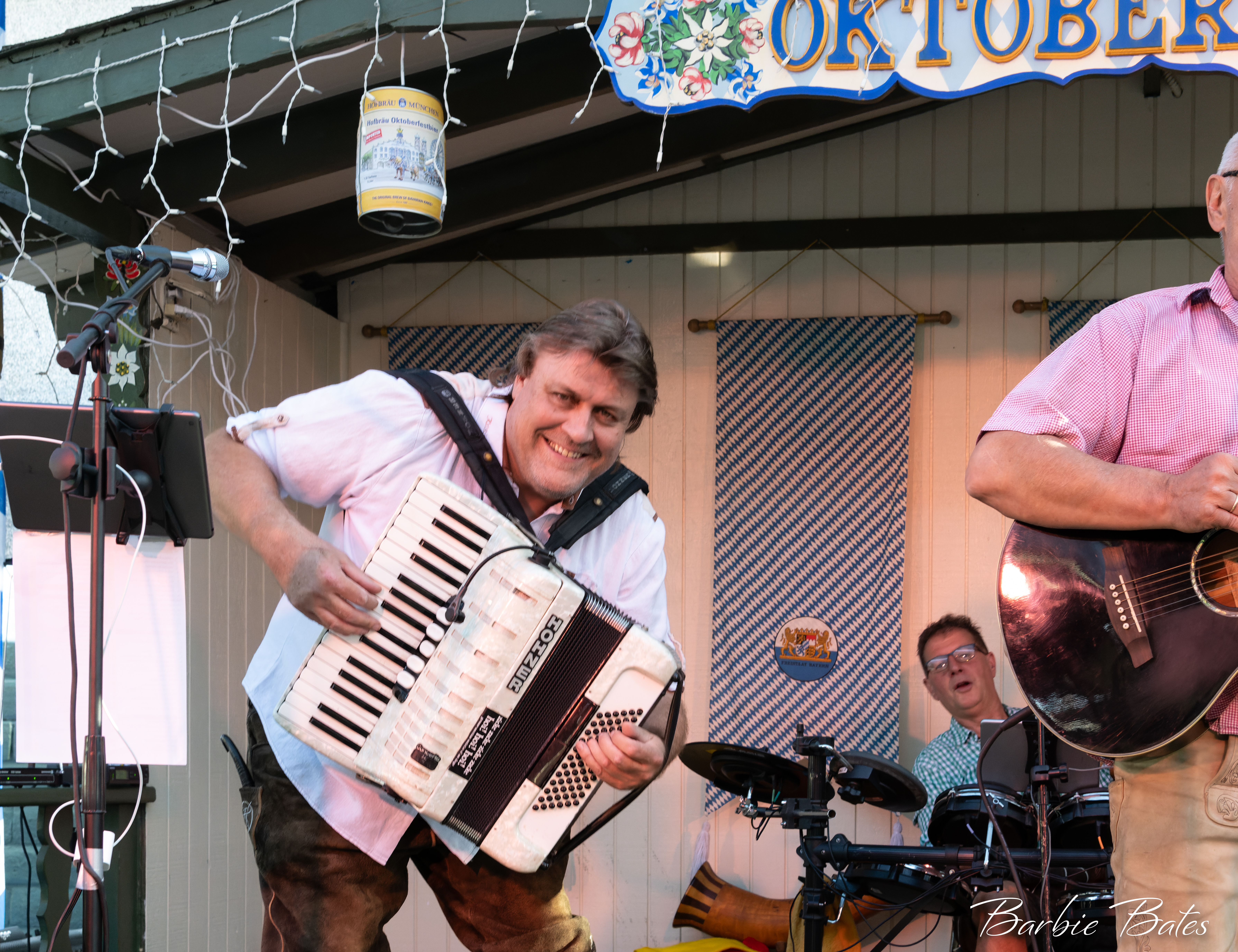
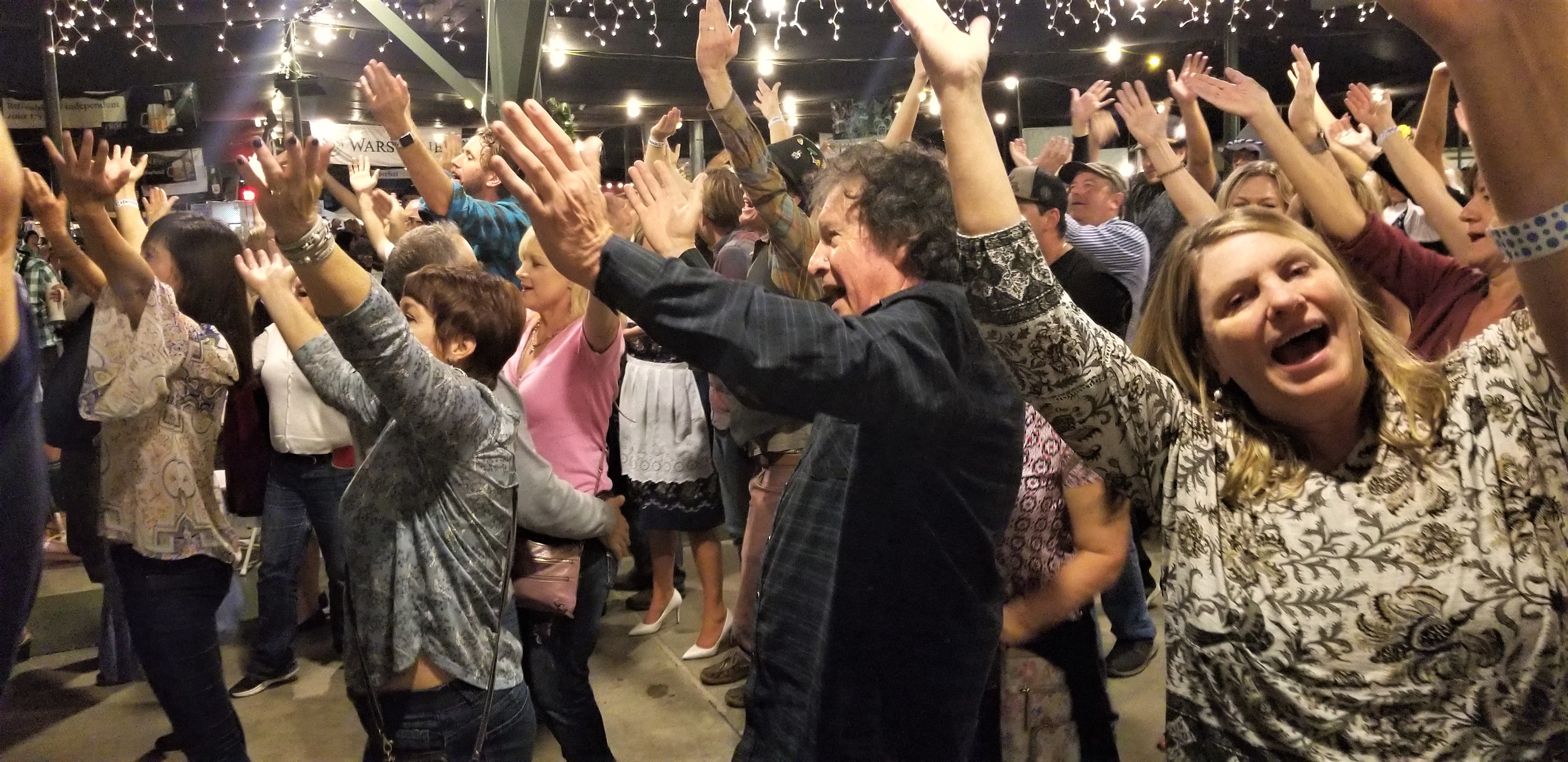
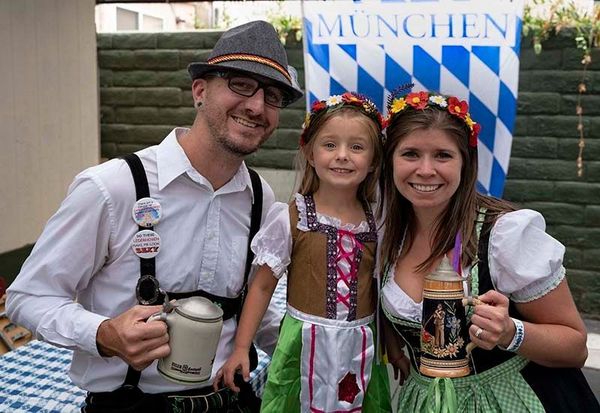
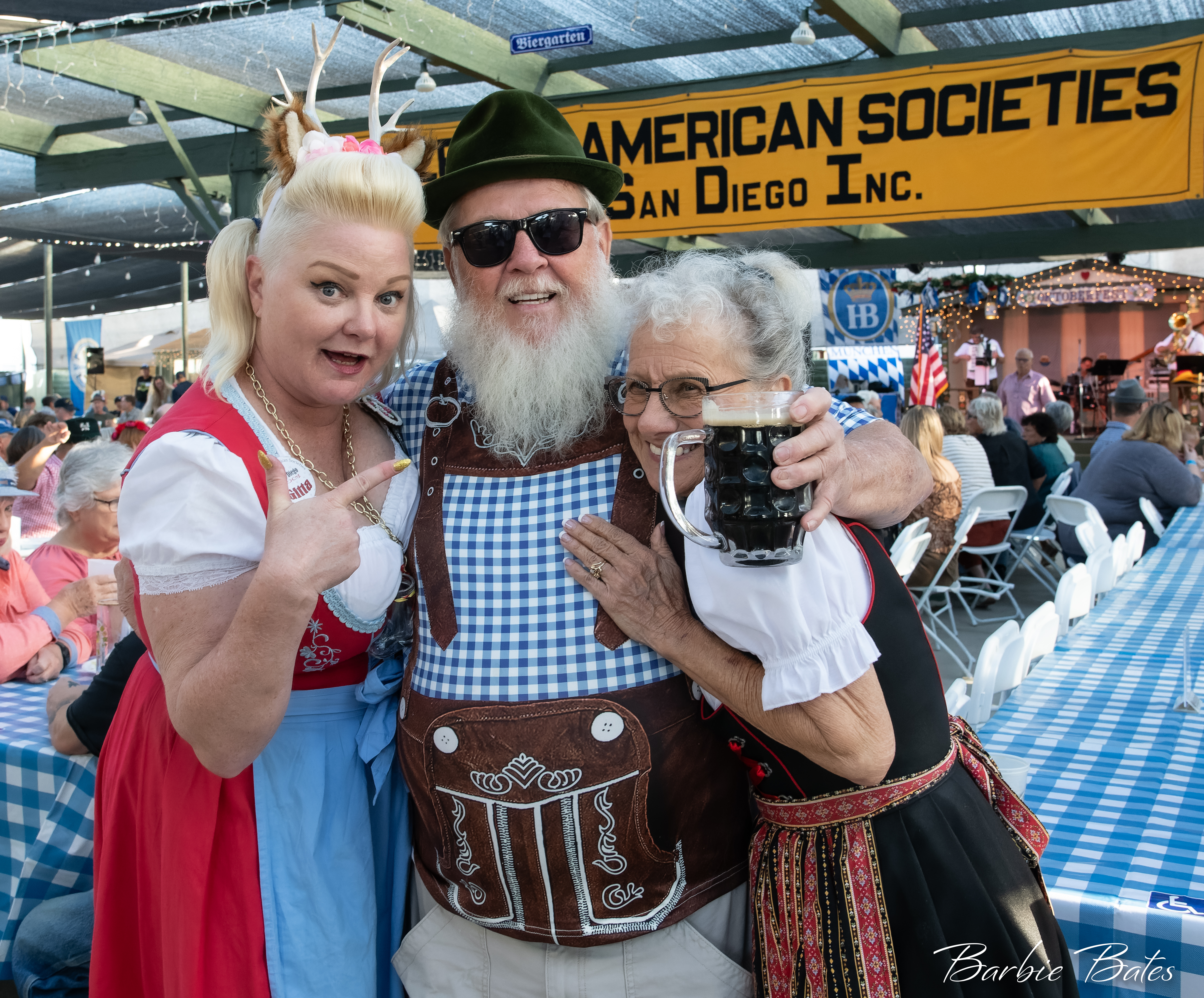
Raffle Tickets
Raffle tickets are on sale throughout the Fest. Prizes will be drawn for during band breaks, and winners must be present to collect their prizes. A Grand Prize of a flight for two to Germany will be drawn on Sunday, Oct. 6 at 8 p.m. You don’t need to be present to win the Grand Prize. Look for the Oktoberfest Königin (Queen) or stop by the stage to get your tickets!
Getting Here
Parking is free but will be extremely limited. Please use Uber, Lyft, take a Taxis or use another form of rideshare services to get yourself to and from Oktoberfest. Consider carpooling or using public transit and walking from the nearest transit stop. Plan ahead and prepare responsibly. For your convenience, a drop-off/pick-up area will be set up at the main entrance.
Rules to Remember
- Pets are not allowed.
- Outside food and beverages are not allowed.
- All bags are subject to search.
- This event is subject to all mandatory COVID and other health restrictions according to local, state and federal requirements.
- We reserve the right to refuse service to anyone.
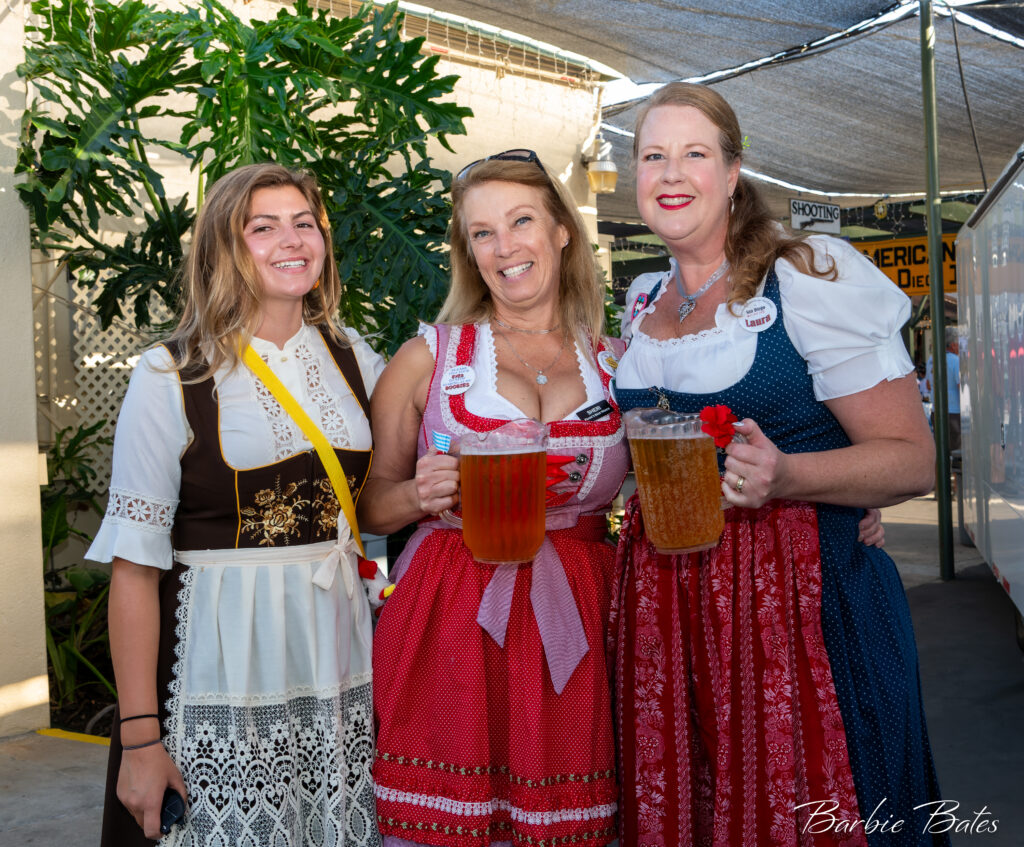
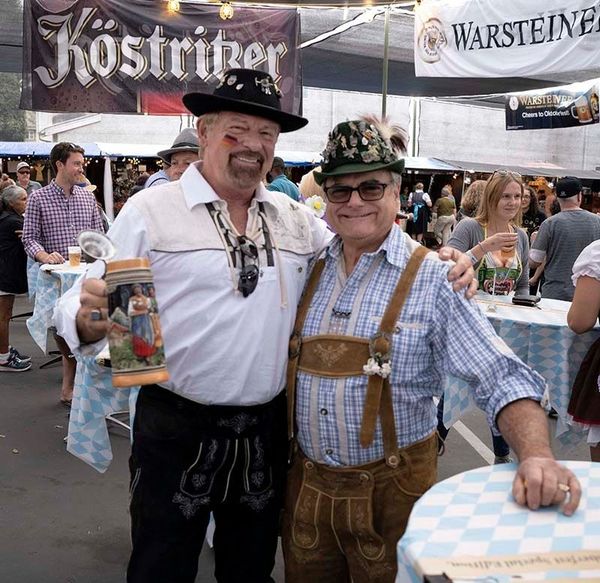
DID YOU KNOW? The History of the Oktoberfest
Four years after Bavaria was elevated to the status of a kingdom, the wedding of Crown Prince Ludwig, later to become King Ludwig I, to Princess Therese of Sachsen-Hildburghausen, took place on Oct. 12, 1810. The official wedding celebrations lasted 5 days and were a great ovation to the ruling house of the young kingdom. Both radiant and popular, celebrations were performed on stage enveloping all of Munich. An enormous festive atmosphere filled the town, including a parade of the marksmen of the National Guard and of the civilian shooting societies, illuminations and music with kettle drums and trumpets, and plenty of eating and drinking.
The Wittelsbachs dynasty used the event to demonstrate their closeness to the people by thanking their subjects, whose patience had been sorely tried through ties with France and the wars that had resulted from expanding territories and administrative reorganization. A great festival as an attempt to establish an identity for the ‘new’ Bavarians, directing their attention to the capital and seat of the king and the Bavarian rulers’ house, came at the perfect time.
The celebrations even then referred to as a “popular festival” in the center of town were concluded on Oct. 17 with a horse race on a meadow outside the town gates. The highest permission for this competition was obtained by, “individuals classified in the Cavalry Division of the National Guard, third class,” under Major Andreas von Dall’Armi. Children in Bavarian national dress paid homage to the Royal family that was present with poems, flowers and fruits of the land. In honors of the bride the festival grounds were called, “Theresens – Wiese”. And today the Oktoberfest venue is still called: “Theresienwiese” – in common Munich parlance, “the Wiesn”, for short. The subsequent horse race was won by the National Guard Cavalryman and hackney coachman Franz Baumgartner, who allegedly proposed this event. The 1810 horse race was meant to revive the famous “scarlet race”, which was last held at the Munich Jacob’s Dult in 1786.
In 2010, Munich held an “Anniversary Celebration for 200 Years of Oktoberfest”, dedicated to the origin and history of the world’s largest folk festival in the southern part of Theresienwiese. Today, Oktoberfest continues to be celebrated in Munich, the capital of Bavaria, welcoming hundreds of thousands of guests annually as the largest funfair in the world. Organizers are careful to always remembering its roots, honor its traditions and welcome new guests along with new tech as the festival continues to advance over time.
FUN FACT: The Story of the Pretzel
The pretzel symbol is a rune from the ancient Germanic times – long before there was an alphabet established – and is the sign for life, as it begins thinly, intertwines, gets thicker and flares out into a circle, coming back to a thin end. The spelling with a “P” is English. In Germany, it is spelled with a “B”, so it starts softly, becomes strong with the “z” in the middle and rolls out into the “l”. Bread has often been considered the “staff of life”, and this symbol became the sign for the bakers’ guilds. Just as the horseshoe was the sign of the blacksmith, the pretzel was the sign of the bakery.
